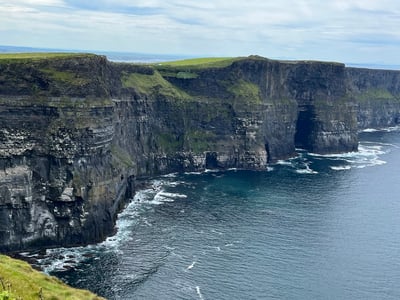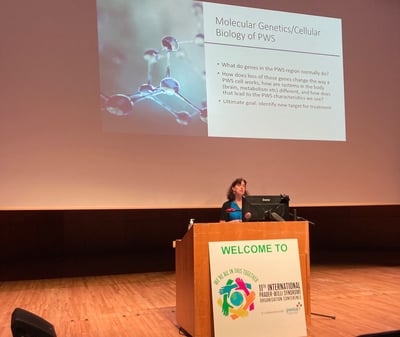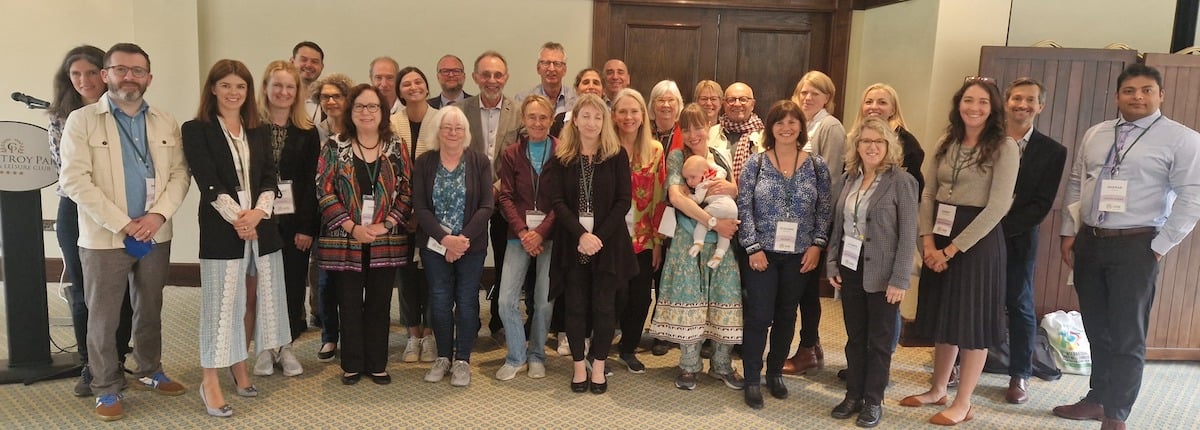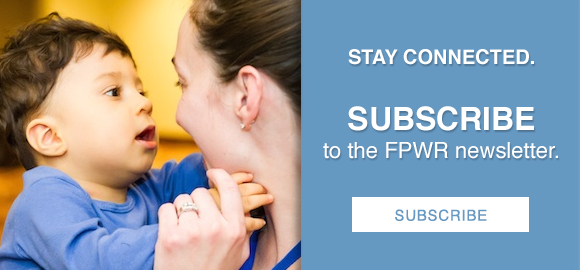 In July 2022, FPWR’s Executive Director Susan Hedstrom, Director of Research Programs Theresa Strong, and Lauren Schwartz, FPWR’s leader of the Mental Health & Behavior Research Programs, attended the International Prader-Willi Syndrome Organisation (IPWSO) meeting in Limerick, Ireland. IPWSO hosts a conference every three years, and it brings together PWS scientists, clinicians, care providers, and families from around the world.
In July 2022, FPWR’s Executive Director Susan Hedstrom, Director of Research Programs Theresa Strong, and Lauren Schwartz, FPWR’s leader of the Mental Health & Behavior Research Programs, attended the International Prader-Willi Syndrome Organisation (IPWSO) meeting in Limerick, Ireland. IPWSO hosts a conference every three years, and it brings together PWS scientists, clinicians, care providers, and families from around the world.
The meeting kicked off with a Workshop of the IPWSO Mental Health Network, a special initiative to improve the mental well-being of individuals with PWS and their families. This multidisciplinary network of about 45 experts (including our very own Lauren Schwartz) is led by Tony Holland, IPWSO President and a Psychiatrist at Cambridge University, who has studied PWS for many years. The Network has been meeting by Zoom over the past year, with the goal of creating a comprehensive document reflecting the existing knowledge and research about PWS mental health. The document will include guidance on best practices to promote mental wellness and identify priorities for new research.
The IPWSO Workshop brought together the Mental Health Network members, as well as additional experts, parents, and providers. During the workshop, participants reviewed and discussed the draft guideline document (titled: 'Improving mental health and wellbeing for people with PWS: an IPWSO Special Initiative Report of the IPWSO Mental Health Network'). Participants broke into small groups for discussion of aspects of the document and generated ideas for dissemination of the information. This was an engaged group, with a lot of creative and lively discussion. Stay tuned for next steps regarding access to materials and information generated by the network, which will highlight strategies for the prevention, detection, and treatment of mental health and behavior challenges for individuals with PWS.
The Workshop was followed by the Clinical and Scientific conference. At that conference,
- Lauren Schwartz presented the work that resulted from a collaboration between FPWR and Levo Therapeutics, which sought to develop a new questionnaire to capture the symptoms of anxiousness that is very commonly seen in children and adults with PWS (e.g., repetitive questioning, concerns about schedules, etc). Her talk The Prader-Willi Syndrome Anxiousness and Distress Behaviors Questionnaire (PADQ): Initial Psychometric Evaluation in the Global PWS Registry Cohort set the stage for use of the PADQ in clinical settings and clinical trials
 Theresa Strong presented a talk on the: PATH for PWS Study 2022 Update: A Non-Interventional, Observational, Natural History Study of Serious Medical Events in Prader-Willi Syndrome (a special thank you to all the “PATH for PWS” participants and their families for their continued involvement with the study)
Theresa Strong presented a talk on the: PATH for PWS Study 2022 Update: A Non-Interventional, Observational, Natural History Study of Serious Medical Events in Prader-Willi Syndrome (a special thank you to all the “PATH for PWS” participants and their families for their continued involvement with the study)- Theresa also presented data on how individuals in the PATH for PWS study, who are not taking experimental medication, compare to participants in Soleno Therapeutics ongoing study of diazoxide choline (DCCR) in PWS, in a poster titled: Comparing hyperphagia and problem behaviors in participants with Prader-Willi syndrome (PWS) receiving Diazoxide Choline Extended-Release (DCCR) with matched participants in PATH for PWS (PfPWS).
- There were many other excellent presentations at the scientific conference. While most focused on the clinical aspects of PWS, others zeroed in on the potential molecular underpinnings of PWS symptoms. Theresa summarized the highlights of the Clinical and Scientific meeting during a presentation at the Parent conference on July 9th. The full scientific program and abstracts are available here.
Finally, the IPWSO conference provided an opportunity for members of the PWS Clinical Trial Consortium (PWS-CTC) to gather and advance the work of the CTC. This meeting included PWS academic experts from the US and Europe, leaders from PWS patient groups (FPWR, IPWSO and PWSA|USA), and representatives from ten different pharmaceutical companies. The focus was to advance the goals of the PWS-CTC - in brief, to efficiently advance clinical trials addressing the unmet needs of the PWS population.
On the agenda was a project to improve the PWS clinical trial experience, which will gather feedback from families who have participated in PWS clinical trials, as well as from investigators and study coordinators at clinical trial sites. There was a lively discussion of how to collect the best data, and excellent feedback on what questions to be asking. For families who have participated in clinical trials, we’ll be reaching out soon to understand your experience and get your input and recommendations. The PWS-CTC also discussed the ‘clinical outcome assessments’ (COA) available for clinical trials – the measures used to determine if a drug ‘works’.
Optimizing COA’s for PWS clinical trials is critical to having success in the drug approval process, and the group had a robust discussion on current COAs and those in development for PWS trials. Effectively using data from the Global PWS Registry and PATH for PWS natural history study to support clinical trials was also discussed. Finally, initial plans were made to engage the European Medicines Agency (EMA) to help them understand the needs and priorities of the PWS community with respect to development of new therapies, as has been done with the US Food and Drug Administration. Overall, it was an excellent opportunity to exchange ideas on how best to advance PWS clinical trials, with the perspective of clinicians, families, and industry all engaged in the discussion.
Overall, the trip to Ireland provided a much-appreciated opportunity to connect internationally with those in the PWS community, towards our shared goal of improving the lives of those with PWS.








